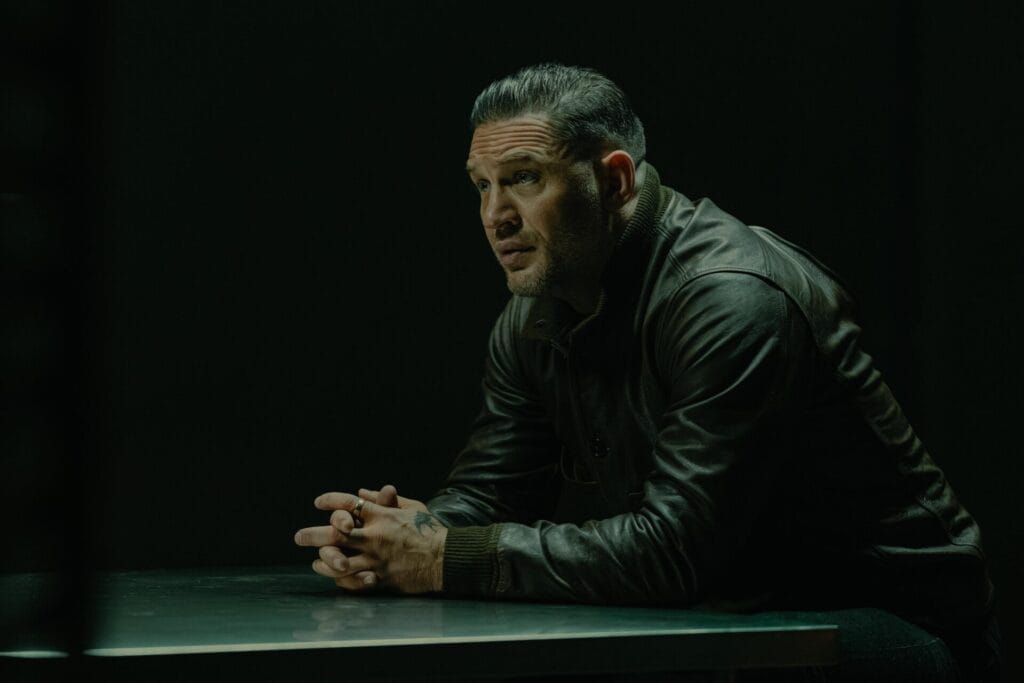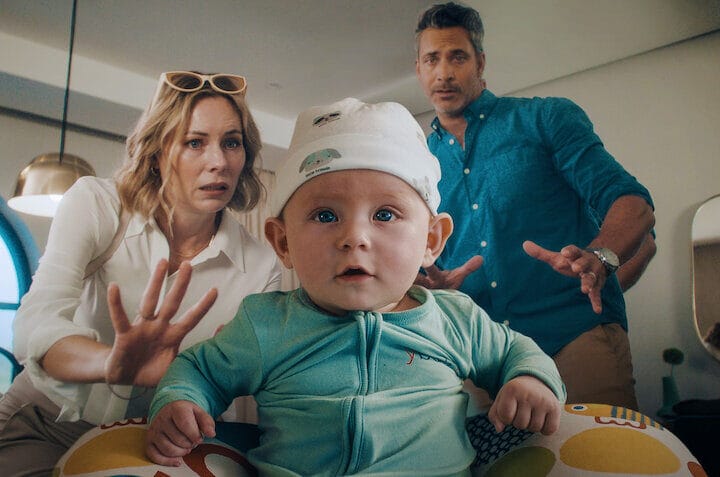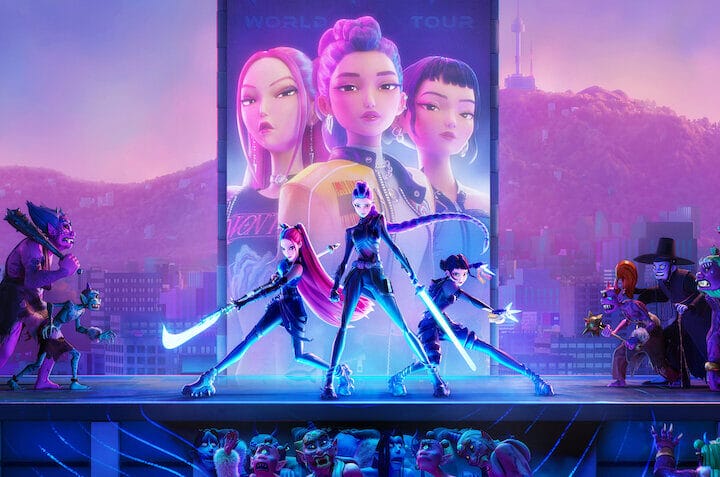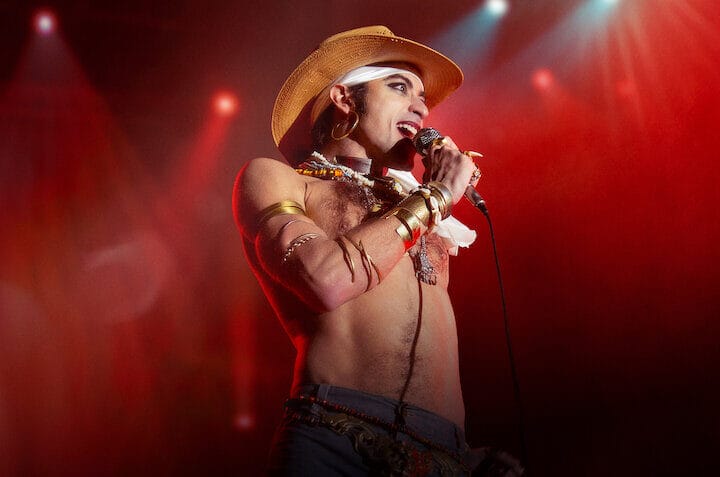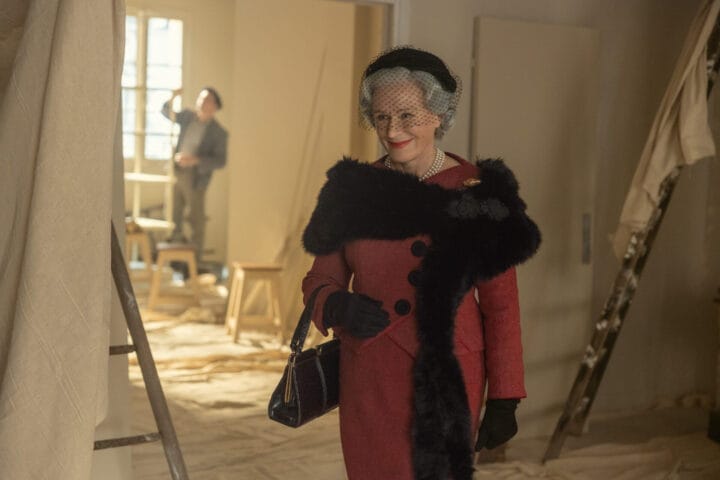Edward Thomas Hardy, born September 15, 1977, in Hammersmith, London, stands as one of the most formidable and compelling actors of his generation. Known for his intense screen presence, remarkable versatility, and often startling physical transformations, Hardy has carved a unique path through both independent film and major Hollywood blockbusters. His journey, however, was far from straightforward. From a turbulent youth marked by addiction and delinquency in suburban London, he rose to achieve critical acclaim, earning an Academy Award nomination and winning a BAFTA Award, embodying a resilience as captivating as any of his on-screen characters. This is an exploration of the man behind the myriad roles, a figure defined by both his shadows and his undeniable star power.
Early Life: Shadows and Sparks in London
Hardy grew up as the only child in a creative household in East Sheen, London. His mother, Anne (née Barrett), is an artist and painter of Irish descent, while his father, Edward “Chips” Hardy, is a novelist and comedy writer. Despite this seemingly supportive and privileged background, Hardy’s adolescence was fraught with difficulty. His education took him through Tower House School, Reed’s School, and Duff Miller Sixth Form College, but was punctuated by trouble; he was expelled from school and, at one point, arrested for joyriding while in possession of a gun.
More significantly, his teenage years and early twenties were overshadowed by serious struggles with delinquency, alcoholism, and a debilitating addiction to crack cocaine. This period of self-destruction stands in stark contrast to his upbringing and the opportunities seemingly available to him, laying the groundwork for a narrative of profound struggle and eventual recovery that would later inform both his life and, arguably, the depth he brings to certain roles. Amidst this turmoil, a brief, early encounter with the limelight occurred when, at age 21, Hardy won The Big Breakfast’s Find Me a Supermodel television competition in 1998, leading to a short contract with the Models 1 agency.
Finding the Footlights: Drama School and Early Roles
Seeking a different path, Hardy turned to acting, pursuing formal training first at Richmond Drama School and later at the prestigious Drama Centre London, part of Central Saint Martins. At the Drama Centre, known for its intensive approach, he honed his skills alongside fellow future star Michael Fassbender, whom Hardy reportedly considered the best actor in their class.
His time at drama school, however, was cut short. In a pivotal career moment, Hardy landed the role of US Army Private John Janovec in the acclaimed HBO/BBC World War II miniseries Band of Brothers (2001). This high-profile television debut proved to be a critical launchpad. He left the Drama Centre early to take the part, and the visibility it afforded him led directly to his feature film debut in Ridley Scott’s intense war thriller Black Hawk Down (2001).
Almost immediately after, he secured another significant role, playing the lead villain Praetor Shinzon, a clone of Captain Jean-Luc Picard, opposite Patrick Stewart in Star Trek: Nemesis (2002). While a major opportunity, his time on the Nemesis set was reportedly marked by a degree of isolation, perhaps influenced by the addiction struggles that still plagued him at this point. Concurrently, demonstrating his varied creative interests even then, Hardy had also dabbled in music, recording an unreleased hip-hop mixtape in 1999 under the name “Tommy No 1” with friend Edward Tracy (“Eddie Too Tall”).
Sobriety, Stage Acclaim, and Rising Profile (2003-2009)
The period following Star Trek: Nemesis marked a significant turning point. Hardy sought treatment for his addictions, achieving sobriety around 2003, a state he has maintained since. He has openly acknowledged that his addiction battles contributed to the end of his first marriage to producer Sarah Ward, which lasted from 1999 to 2004.
Returning to work with renewed focus, Hardy made a powerful impact on the London stage. His performances in Blood and In Arabia We’d All Be Kings earned him the London Evening Standard Theatre Award for Outstanding Newcomer in 2003. He also received a nomination for the Laurence Olivier Award for Most Promising Newcomer in 2004 for his role in In Arabia We’d All Be Kings, showcasing his dedication to theatre alongside his burgeoning screen career.
During these years, he continued to build his television resume with notable roles, including Robert Dudley, childhood friend to Queen Elizabeth I, in the BBC miniseries The Virgin Queen (2005), the menacing Bill Sikes in a 2007 adaptation of Oliver Twist, and a critically lauded performance as Stuart Shorter, a homeless man battling abuse and addiction, in the BBC Two drama Stuart: A Life Backwards (2007). His portrayal of Shorter earned him his first BAFTA Television Award nomination for Best Actor.
On the big screen, he appeared as the gay gangster Handsome Bob in Guy Ritchie’s RocknRolla (2008). However, it was his role in Nicolas Winding Refn’s Bronson (2008) that truly marked him as a transformative actor. To play Michael Peterson, the man dubbed Britain’s most violent prisoner who adopted the name Charles Bronson, Hardy underwent a significant physical change, gaining approximately three stone (19kg or 42lbs) of muscle. This intense, physically demanding performance, requiring him to bulk up considerably, garnered widespread critical acclaim and won him the British Independent Film Award (BIFA) for Best Actor. Bronson established Hardy’s willingness to drastically alter his physique as a key element of his immersive acting approach, a trademark that would define many future roles. He also appeared in the TV adaptation of Wuthering Heights (2009) and the crime drama series The Take (2009) during this period.
Hollywood Breakthrough and Mainstream Domination (2010-Present)
The year 2010 marked Hardy’s definitive arrival on the global stage with his scene-stealing performance as the sharp-suited “forger” Eames in Christopher Nolan’s science fiction blockbuster Inception. The role brought him widespread recognition and likely contributed to him winning the BAFTA Rising Star Award in 2011.
He followed this with another physically demanding role in Warrior (2011), playing estranged MMA fighter Tommy Conlon. The part required him to pack on significant muscle mass and undergo rigorous fight training, further cementing his reputation for intense physical commitment. That same year, he appeared in the Cold War thriller Tinker Tailor Soldier Spy (2011), sharing the screen with one of his acting heroes, Gary Oldman.
Hardy reunited with Christopher Nolan for The Dark Knight Rises (2012), taking on the iconic role of the physically imposing and intellectually formidable villain Bane. This required another major physical transformation, gaining around 30lbs (13kg), and involved acting behind a mask for much of the film, relying on physicality and his distinctive, much-discussed voice to convey the character’s menace.
His diverse output continued with roles in the Prohibition-era drama Lawless (2012), the action-comedy This Means War (2012), the one-man-show thriller Locke (2013) where he was the only actor on screen, and the crime drama The Drop (2014).
In 2015, Hardy stepped into another iconic role, taking over from Mel Gibson as Max Rockatansky in George Miller’s critically acclaimed action masterpiece Mad Max: Fury Road. The film was a massive success, despite a notoriously grueling shoot and reported friction between Hardy and co-star Charlize Theron. The same year, he delivered a stunning dual performance as infamous London gangsters Ronnie and Reggie Kray in Legend, earning his second BIFA for Best Actor. Capping off an extraordinary year, Hardy received his first Academy Award nomination for Best Supporting Actor for his portrayal of the treacherous John Fitzgerald in Alejandro G. Iñárritu’s The Revenant, starring opposite Leonardo DiCaprio.
Hardy also made a memorable return to television, joining the cast of the hit BBC series Peaky Blinders in 2014 as the charismatic and volatile Jewish gang leader Alfie Solomons, a fan-favorite role he reprised across multiple seasons. Known for his unpredictable energy, Hardy reportedly brought significant improvisation to the part.
Further demonstrating his growing ambition beyond acting, Hardy co-created, co-produced, and starred in the dark, atmospheric period drama series Taboo (2017). Developed with his father, Chips Hardy, and Peaky Blinders creator Steven Knight, the series saw Hardy play James Keziah Delaney, an adventurer returning to 1814 London seeking revenge. This project marked a significant step for Hardy into the realm of content creation, taking greater control over narrative and production, notably using the Twi language from Ghana in the series.
Hardy then entered the superhero genre again, this time with Sony’s Marvel Universe films, playing journalist Eddie Brock and the symbiotic anti-hero Venom (2018). He reprised the dual role in Venom: Let There Be Carnage (2021) and Venom: The Last Dance (2024), also receiving story and producer credits on the sequels, indicating his deepening involvement in the franchise. He also made a brief, uncredited cameo in Marvel Studios’ Spider-Man: No Way Home (2021).
Other notable recent roles include Christopher Nolan’s Dunkirk (2017), where he again spent much of the film masked as an RAF pilot, the controversial biopic Capone (2020), portraying the gangster’s final, dementia-ridden year, and the motorcycle club drama The Bikeriders (2023). His upcoming projects include the action thriller Havoc, the crime series MobLand, and the long-rumored Mad Max: The Wasteland.
The Hardy Method: Acting Style, Transformation, and Influence
Tom Hardy’s acting is often described as intense, cerebral, and remarkably versatile. He possesses a chameleon-like ability to inhabit vastly different characters, frequently immersing himself deeply in their physical and psychological worlds. He has spoken about his approach, distinguishing it from pure method acting but emphasizing techniques like “camouflage” – altering his physical appearance, voice, and accent – and “hustle,” referring to the drive and commitment required. He also employs a “counterpoint” method, seeking vulnerability in tough characters and strength in weaker ones, always focusing on what the character is actively “doing” rather than just reciting lines.
His dramatic physical transformations are a key component of this immersive process. Gaining significant weight and muscle for Bronson, Warrior, and Bane, and losing weight for Stuart: A Life Backwards, are prime examples. These are not merely aesthetic changes but calculated parts of building the character from the outside in. However, this dedication has come at a cost. Hardy has acknowledged in interviews, particularly as he entered his 40s, that these rapid and extreme physical shifts have likely “damaged” his body, leaving him “achier” and more mindful of the long-term physical price of his craft. This suggests a tension between his artistic commitment and the physical realities of such demanding work over many years.
Hardy cites Gary Oldman as a major influence and acting “hero,” and has had the opportunity to work with him on multiple films. He speaks of absorbing elements from actors he admires but transforming them into something uniquely his own. His ability to convey complex emotions and presence with minimal dialogue, often with his face partially or fully obscured (as in Locke, Dunkirk, Mad Max: Fury Road, and The Dark Knight Rises), is another hallmark of his skill.
Critically, Hardy is highly regarded, evidenced by his Academy Award nomination, BAFTA Award win and nominations, multiple British Independent Film Awards, and a Critics’ Choice Movie Award. While not every project has been a universal success, his performances are consistently noted for their power and commitment.
Beyond the Screen: Sobriety, Family, and Philanthropy
Off-screen, Hardy’s life reflects the journey of overcoming adversity seen in his early years. He has remained sober since 2003 and has been open about his past struggles with addiction, using his platform to shed light on the challenges.
His personal life includes his first marriage to Sarah Ward (1999-2004). He has a son, Louis Thomas Hardy, born in 2008, from his relationship with assistant director Rachael Speed. In 2014, he married English actress Charlotte Riley, whom he met on the set of Wuthering Heights. The couple have two children together, born in 2015 and late 2018; they are known for keeping their children’s lives private, though one son is reportedly named Forrest.
Hardy is significantly involved in charitable work, often focusing on causes that resonate with his own past. He is a patron for Flack Cambridge, an organization that helps homeless individuals in Cambridge aid their recovery, partly through producing a magazine. He became involved after starring in Stuart: A Life Backwards, which depicted homelessness and addiction. He is also an Ambassador for The Prince’s Trust, a UK charity founded by King Charles III that helps disadvantaged young people turn their lives around, assisting those who have struggled with school, unemployment, or the law. His own experiences lend authenticity and passion to his support for these organizations. Additionally, his theatre company, Shotgun, which he founded with director Robert Delamere, reportedly had an outreach program for disadvantaged individuals. This sustained commitment to helping others facing challenges similar to his own underscores the “phoenix narrative” of his life – not just rising from his own struggles but actively working to help others rise from theirs.
In recognition of his contributions to drama, Tom Hardy was appointed Commander of the Order of the British Empire (CBE) in the 2018 Queen’s Birthday Honours. Away from acting and philanthropy, he is known for his love of dogs, his practice of Brazilian Jiu-Jitsu (in which he has competed and won tournaments) and Capoeira, and has a permanently bent little finger on his right hand from an old knife accident. He also famously got a tattoo reading “Leo Knows All” after losing a bet to his Revenant and Inception co-star Leonardo DiCaprio.
The Enduring Intensity of Tom Hardy
Tom Hardy occupies a unique space in the contemporary film landscape. He is an actor capable of delivering critically acclaimed, nuanced performances in challenging independent films while simultaneously anchoring multi-billion-dollar blockbuster franchises. His career is a testament to transformation, not only in the physical sense for which he is renowned, but also in his personal journey from a troubled young man battling severe addiction to a globally respected actor, producer, and philanthropist.
His intensity on screen is matched by a dedication to his craft and a willingness to explore the complexities of human nature, often delving into dark or morally ambiguous territory. Yet, this is balanced by a commitment to giving back, channeling his own experiences into meaningful support for others facing adversity. As he continues to take on diverse and demanding roles, from the upcoming Venom: The Last Dance and Havoc to potential returns to the wasteland of Mad Max, audience anticipation remains high. Tom Hardy’s enduring appeal lies in this compelling blend of raw talent, hard-won resilience, and transformative power, making him one of the most captivating figures in modern acting.
